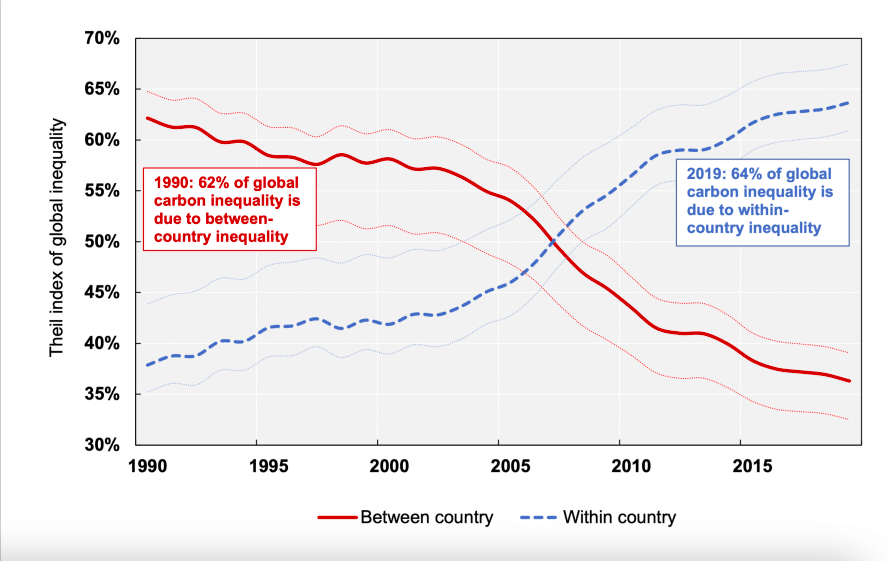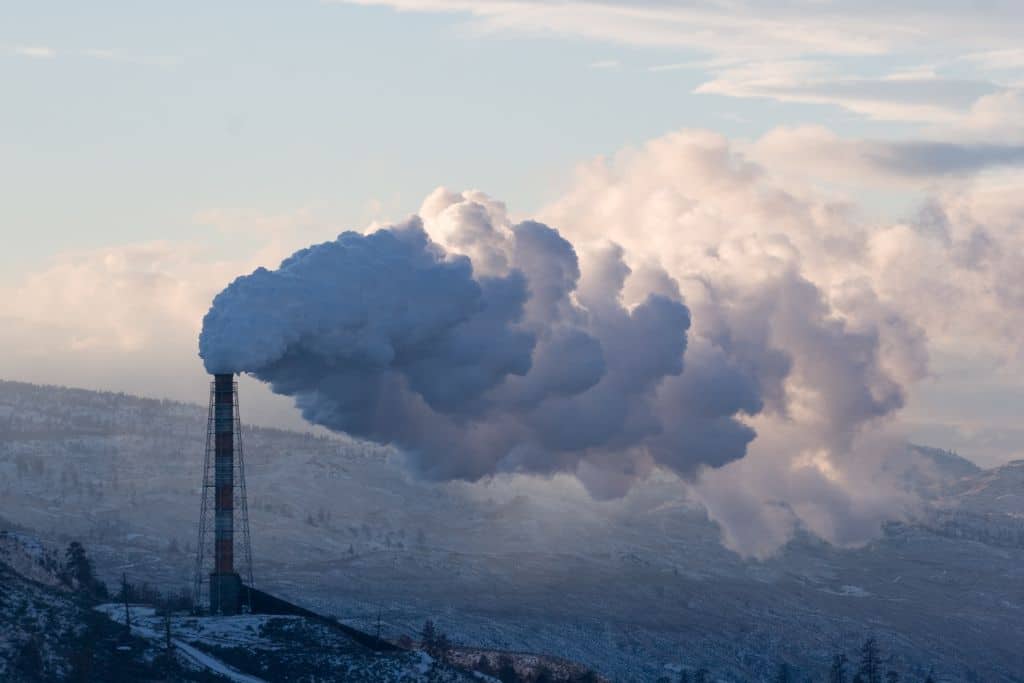A new report suggests that the global “top 1%” generates more emissions than the bottom half of the world’s population, a renewed confirmation of the tight link between wealth and climate change vulnerability.
—
The top 10% of the world’s population, the so-called “polluting elite,” are responsible for almost half of the annual carbon emissions and the global top 1% of emitters are responsible for more emissions than the entire bottom half, a new UN-backed report has found.
It also suggests that reducing carbon consumption at the top level can free up the carbon budget required to eradicate poverty below the US$5.50/day poverty line, meaning the poorest in the world would be able to increase their greenhouse gas emissions needed to reach prosperity.
According to the authors of the Climate Inequality Report 2023, who investigated the origin of greenhouse gas emissions around the world, “carbon inequalities within countries now appear to be greater than carbon inequalities between countries,” making up nearly two-thirds of the total, a “complete reversal” as opposed to 1990.

Global inequality of individual emissions: between vs. within-country inequality, 1990- 2019. Image: Climate Inequality Report
Accelerating global warming, the study suggests, is to blame on a tiny fraction of the world population. The report, led by economists from the Paris-based World Inequality Lab, was co-directed by the Thomas Piketty, who following the 2008 financial crisis helped shape the idea of the “1%”, term that refers to a group of wealthy people whose high-carbon lifestyles fuel the climate crisis.
The report provides further evidence of the growing emissions gap between rich and poor, suggesting that the global top 1% of emitters generate more emissions than the poorest 50%, whose carbon footprint is neglectable. According to a 2022 analysis, it would take 26 years for someone in the lower-income tier to generate the same amount of carbon dioxide as the richest do in a year.
You might also like: World On Track To Warm Above 2C As Greenhouse Gases Surge, UN Report Warns
Poverty is also closely related to climate change vulnerability. Low-income countries are notoriously more vulnerable to extreme weather events and other consequences of global warming such as droughts, one of the biggest threats to food security. The report suggests that “low-income regions are facing agricultural productivity losses of 30% and more due to climate change.”
Having adequate access to food is one of the most basic and important human rights and yet, hundreds of millions of people suffer from starvation, with approximately 25,000 succumbing to hunger every day. An estimated 854 million people are also undernourished. The climate crisis is changing weather patterns and increasing the chances of extreme events such as hurricanes, floods, and droughts. It is also responsible for changing and polluting entire ecosystems, compromising biodiversity and destroying harvests. All these events have a huge impact on food production, as they significantly limit the quality, availability, and accessibility of resources, and compromise the stability of food systems around the world.
You might also like: 3 Biggest Threats to Global Food Security


















